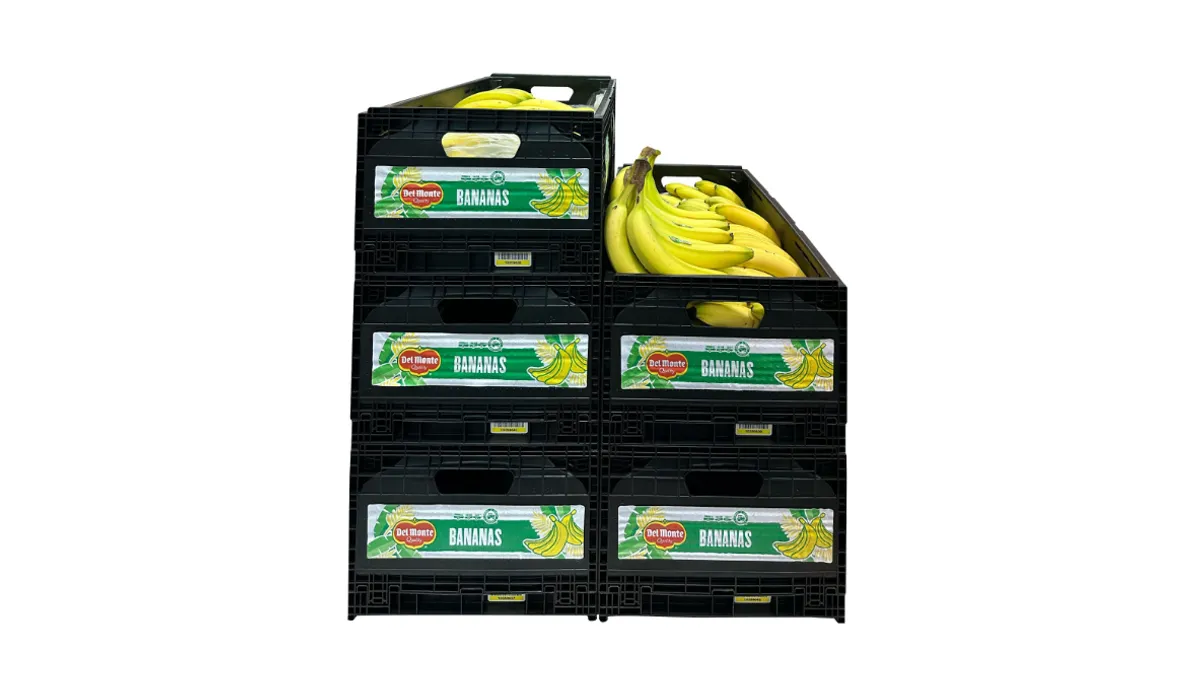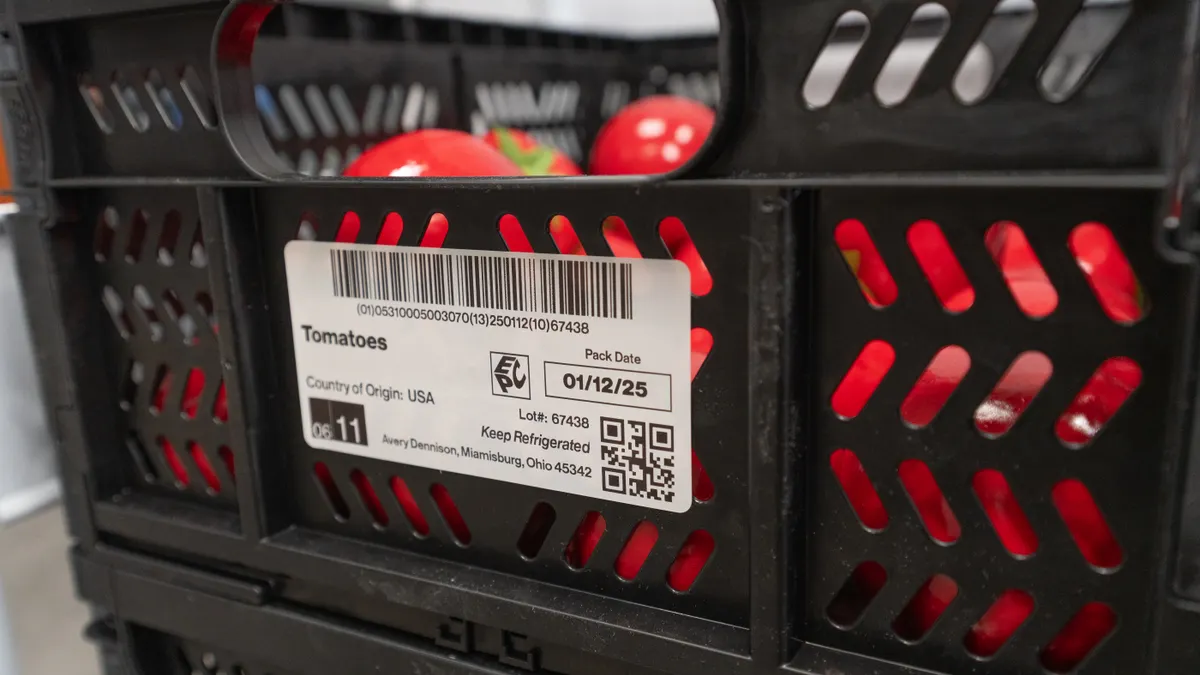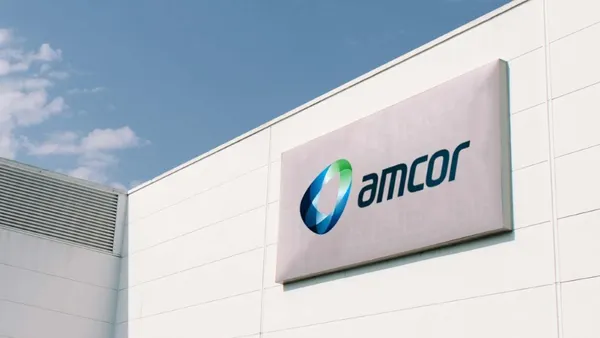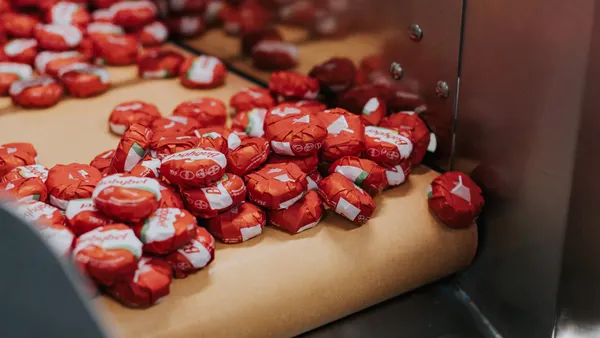Companies constantly innovate with technology and redesign their packaging to get better performance, improve marketability and enhance sustainability. Here’s a look at four recent revamps, substrate switches and product launches on Packaging Dive’s radar.
Bananas get reusable, trackable shipping containers
Global fruit, vegetable and prepared food distributor Fresh Del Monte announced this week it’s working with Rochester, New York-based Arena Packaging to replace the single-use cardboard boxes that bananas are shipped in. They introduced reusable plastic containers designed to last up to 15 years. These containers, which are also trackable, have debuted in parts of Texas.
For more than six decades, bananas have been shipped in recyclable cardboard boxes that could hold up to 40 pounds, which then had to be stacked through a labor-intensive process upon arrival at grocery stores, the companies said.
The design and validation process for the reusable containers took multiple years. Airflow through the reusable containers is meant to improve freshness, and less handling throughout the supply chain results in an “overall healthier-looking fruit out on the shelf,” the companies said. Damaged container pieces can be replaced and repurposed.
“Our collaboration with Fresh Del Monte Produce is set to redefine the entire process of packing, shipping, ripening, storing, and merchandising bananas. This marks a significant milestone in our shared mission to establish a more sustainable and circular packaging system,” Arena Packaging CEO Tony Arena said in a statement.
PepsiCo pumps up porridge packaging recyclability
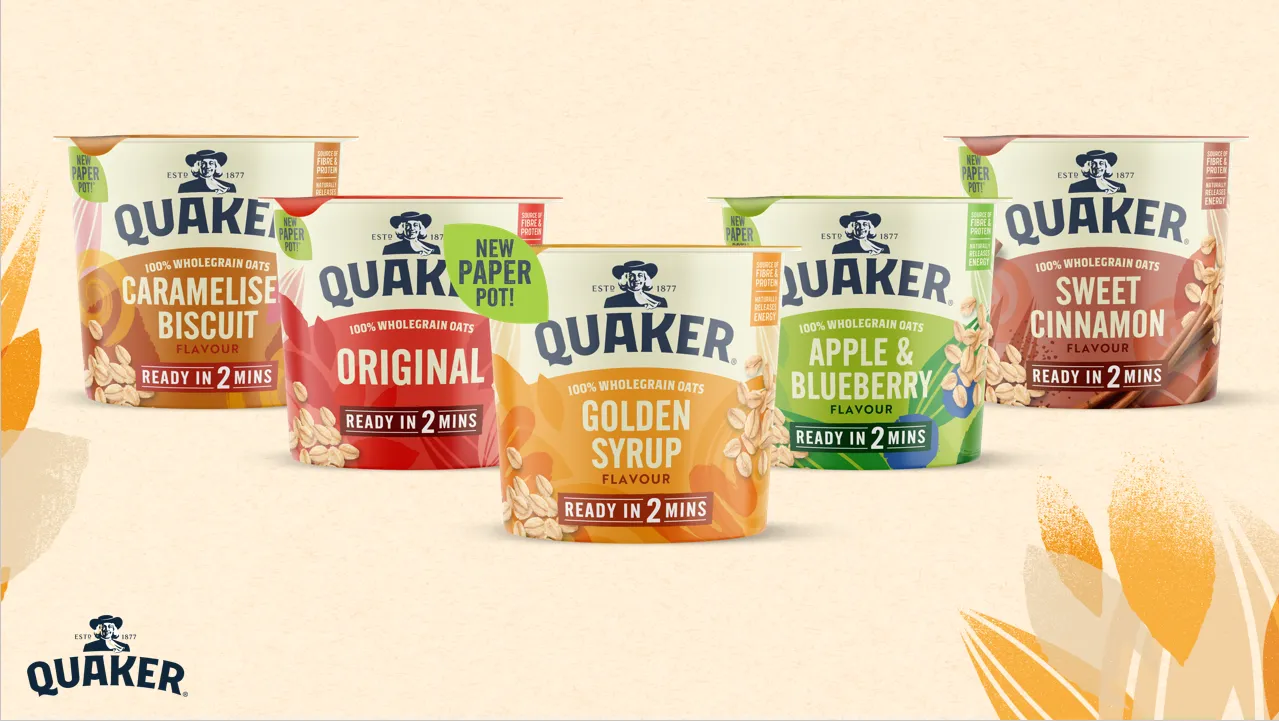
PepsiCo wants recycling to be easier for U.K. porridge eaters. Its brand Quaker Oats this week announced new paper packaging across its line of porridge pots.
Previously, proper package recycling entailed separating inner plastic packaging from a card sheath. The change, which is expected to save 200 tons of virgin plastic annually, means those consumers only will need to rinse and recycle a single piece of packaging.
“We know convenience is a key factor in driving recycling rates, which is another important reason for launching this new packaging, and we’re pleased to be making it as easy as possible for Quaker fans to recycle their pots,” said Gareth Callan, sustainable packaging lead at PepsiCo UK and Ireland, in an emailed statement.
PepsiCo U.K. also recently rolled out paper outer bags for multipacks of its Walkers Baked chips brand. Across PepsiCo Europe, the company says it intends to “eliminate virgin fossil-based plastic in crisp and snack bags by 2030.”
Eco-Products pitches new fiber lids to plastic-restricted markets
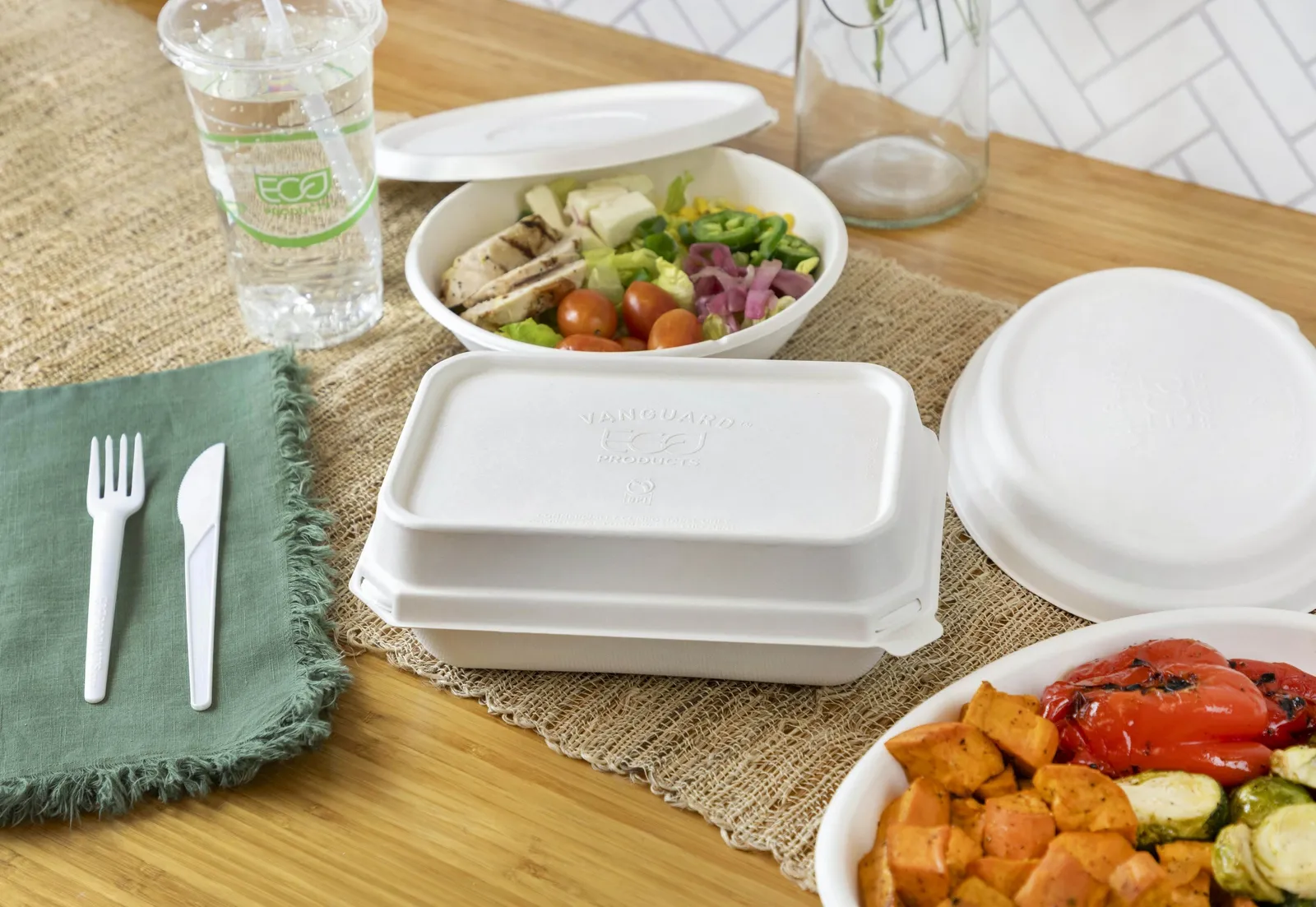
Eco-Products released new fiber-based snap-on lids for hot cups and oval and rectangular bowls to “help operators everywhere, but especially those in markets where local ordinances prevent the use of foodservice plastic,” the company announced this week.
Eco-Products, a Novolex brand, said the renewable molded fiber offerings have been certified as compostable by the Biodegradable Products Institute “and meet ASTM standards for commercial compostability.” They are also certified by the GreenScreen for Safer Chemicals Program for avoiding the use of added PFAS and other chemicals of high concern or known regrettable substitutes, Eco-Products reported.
"Our plan is to continue adding items with innovative performance features that make life easier for those adjusting to new regulatory requirements,” said Nicole Tariku, director of product development for Eco-Products, in a statement.
Amcor markets monomaterial medical packaging
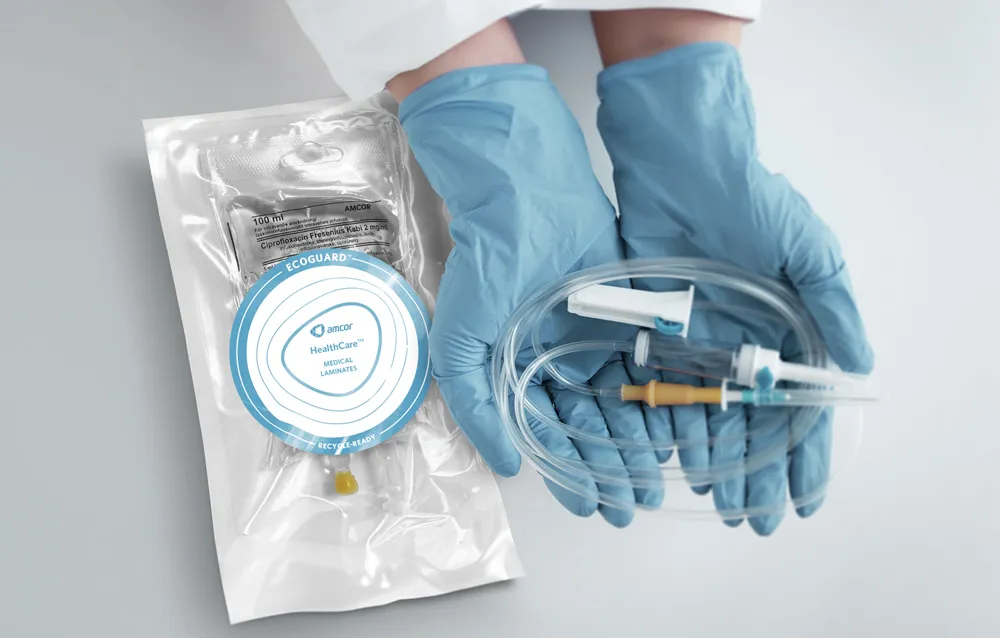
Amcor is marketing advancements in its efforts to make packaging in healthcare settings more sustainable. It hopes a monomaterial PE solution will help.
In a blog this week, the company wrote that transitioning from paper-plastic packages to all-film packs makes collection and sorting for recycling easier.
“Traditional medical laminates have long relied on non-recyclable oriented polyester as an outer layer,” the company explained in a blog this week. Additionally, laminates and paper-based top webs used in 3D-thermoformed packages have not been recyclable.
By switching to monomaterial packaging, items such as drapes, protective materials, catheters, injection and tubing systems could have monomaterial packages.
“These recycle-ready solutions are well-positioned to meet the growing environmental requirements in packaging tenders, which are already a reality in several European countries,” the company wrote.


